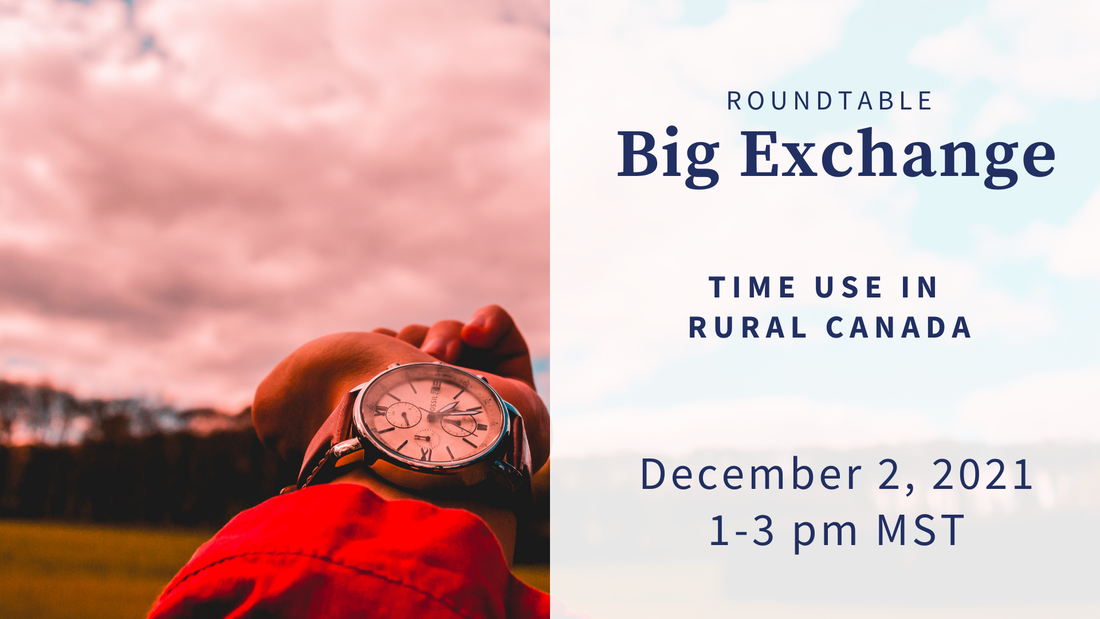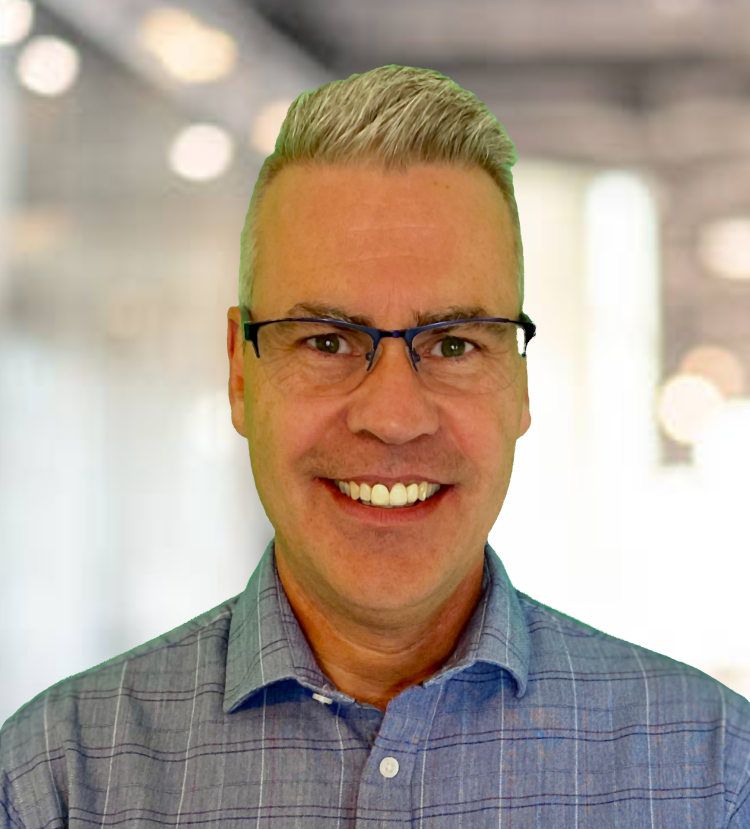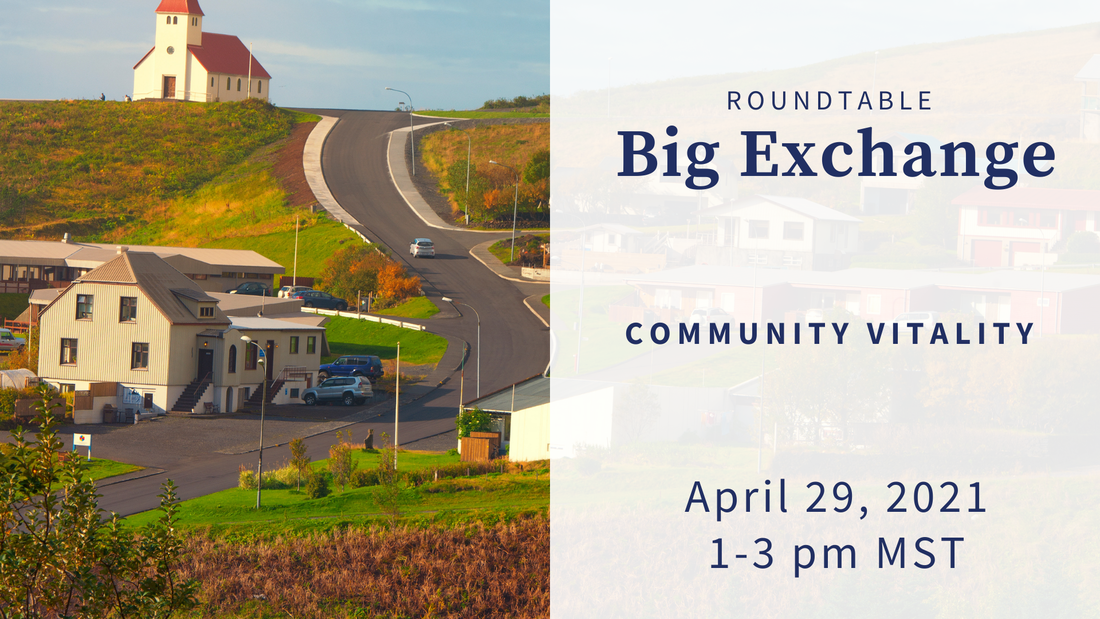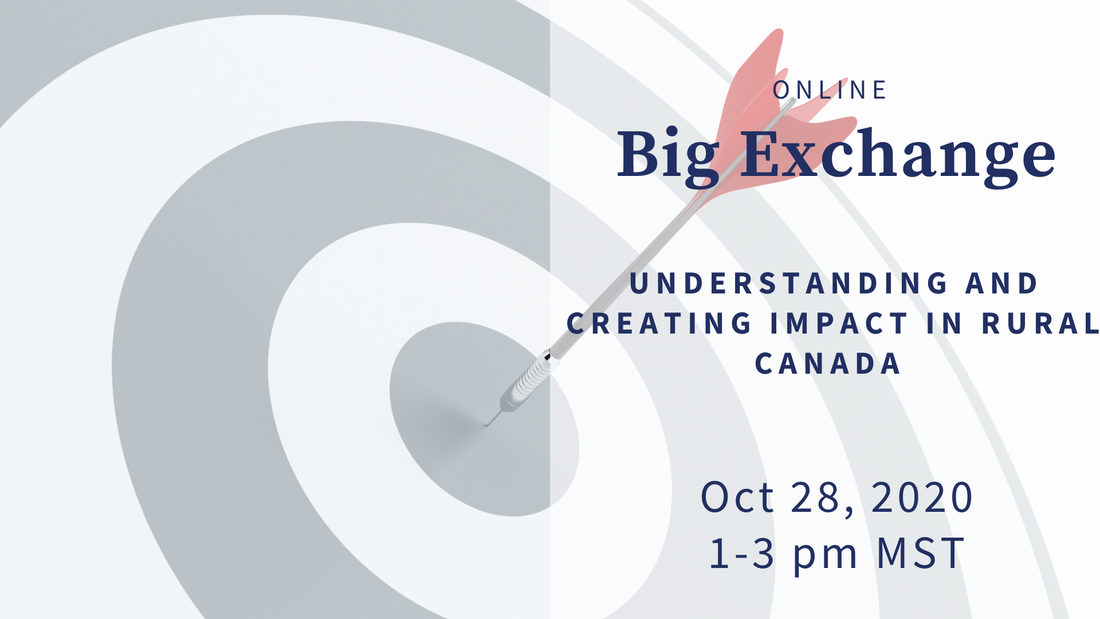|
It's a topic we don't often think about as an independent issue, but time in rural communities is a major contributor to our wellbeing. The Canadian Index of Wellbeing identifies the time domain as including four main components as time, timing, tempo, and temporality. How we spend our days in rural communities, when we are able to complete certain tasks, the speed at which we live our lives and how these rhythms work together is important and different than what is experienced in an urban context. Join us to discuss the differences, challenges, benefits, and strategies with time use in rural communities. Read the biographies of our two discussion leaders below.
Kevin Gangel is CEO and Co-Founder of Unstoppable Conversations, which exists to cause leadership for a transformed world. Unstoppable empowers teams to produce seemingly impossible results, tackling disruptive growth, innovation, culture, leadership, and change in times of pressure and uncertainty. The underlying paradigm that is driving all current challenges and opportunities is surfaced, articulated, and tested against the desired future…only to be found wanting. Teams then co-create a custom-designed new world view, live and in real-time, to go after something bigger than they ever thought possible. Kevin is the source of Unstoppable being a certified B Corp, a 1% For The Planet Member, and a fierce champion for the environment and for Justice and Equity. He has a passion for organizations that are committed to impacting the UNSDGs, the world’s to-do list, and you can frequently find him at sustainability and social impact conferences. In addition to extensive training in Ontology, Phenomenology, Leadership, Entrepreneurship and Governance, Kevin is a Certified Mediator and Negotiator. Thanks to this rigorous and comprehensive formal training, he occasionally wins arguments with his teenage children. Scott MacPherson owns and operates a cow/calf ranch operation. Happily married to his wife Rachel for 21 years with five children ranging in age from 11-20. They run about 400 mother cows and background calves as well. The operation is a certified organic farm and ranch and has been since 1999. Scott did not live on a farm but met his wife Rachel at college in 1997 where he attained my red seal in cooking. After finishing school the pair moved back to her family’s farm to help with their operation which is a legacy operation. Their family staked their claim in 1909 when land in the west was opened up to development. Being a certified organic farm/ranch, sustainability and good environmental practices have been key. Over the years Scott has sat on many different boards and committees. Chair of Big Stone community club, member of the Big Stone volunteer fire department, leader in our local 4-H club for four years, various roles on our school parent council including chair and vice chair, director on the Friends of Youngstown School Society, sat on various community enhancement boards and currently a school board trustee with the Prairie Land Public School Division for one and a half years. Realizing rural areas are fading away he went in to public service with ideas to grow and bring together community revolving around the schools in our communities. They have started a school of excellence with a 5500 square foot greenhouse being the focal point. This has enabled connecting community leaders all across the school division into one organization that meet quarterly to share ideas. Rural sustainability and growth has always been a driving force in everything he does.
0 Comments
Democratic engagement is defined by the Community Index of Wellbeing as taking part in the democratic process through political institutions, organizations, and activities. This month we are discussing how democratic engagement impacts rural communities, how it can make it better and how it links to other factors affecting quality of life. Our two conversation leaders are Jacquie Fenske and Ken Merkel.
Jacquie currently serves as the chair for Elk Island Community Futures and is on the board of Silver Skate Festival Her past board positions include the Alberta Association of Agricultural Societies, Alberta Innovates Health Solutions as well as local Ag society and sports boards. She has extensive committee experience on All-party committees of Public Accounts, Energy, and Communities and Families as well as a host of municipal committees including the Strathcona Agriculture Service Board where she served as chair for several terms. Jacquie has a passion for promoting the opportunities the agriculture industry presents through food, events and innovation. Her knowledge of politics, the food service industry and the potential to bring urban and rural Albertans together provides much of what motivates her to get involved.
One way that the Canadian Index of Wellbeing measures the domain of healthy populations is by measuring self reported mental health. This month, Green Hectares will be discussing mental health and what the issues are in rural Canada at the Big Exchange Roundtable The past several years have highlighted new challenges for rural people from a pandemic that has affected them differently than urban populations and a difficult growing season in various parts of the country. We are wanting to discuss how individuals can support themselves, and their communities with available resources. We are hoping to delve into the complicated and sometimes simple ways people improve their mental health. Read about our discussion leaders below.
Debra Kasowski, the charismatic host of the thought-provoking podcast, The Millionaire Woman Show, is committed to enriching the leadership potential of her countless clients essentially guiding them to go within to capitalize on their true personal power, so they can achieve the measurable success they desire in business, and in life. After graduating with distinction, having earned a Bachelor of Science in Nursing, this award winning, three-time bestselling author, 2x TEDxspeaker, past contributor to Forbes Coaches Council, and Certified Executive Coach spent many years as a clinical manager excelling in leadership development, before founding Debra Kasowski International. With over 20 years of award-winning experience as a CEO and VP, Chris Maksylewicz is a seasoned, decisive, and driven individual. Currently, Chris is the Executive Director of The Erika Legacy Foundation. The Erika Legacy Foundation is a Canadian non-profit that has redefined what causes suicide and how it can be prevented. The foundation has three main goals: research into the science behind suicide and mental illness then using that research to create highly engaging programs and campaigns, and finally inspiring others to educate themselves as well as spread awareness and hope. The Erika Legacy Foundation established a large scale partnership with a large youth charity and together they have created a full scale Well-being curriculum for youth. The Well-Being curriculum is currently being offered to over 100,000 teachers across North America and has the potential to reach over 2 Million youth, teaching them the science behind suicide and mental health, as well as mindfulness, empathy, social justice, and how to break the stigmas surrounding these issues. Culture and leisure are one of the eight domains of the Canadian Index of Wellbeing. How we spend our time and pursue a variety of interests directly impacts how we view our quality of life. Arts and culture can look different across the urban-rural divide but either way, the impacts from it can ripple across the other seven domains and help rural communities stretch their resources while still improving life for their neighbours. On July 29, Green Hectares is hosting another Big Exchange Roundtable to discuss how important arts and culture are in a rural community and how we can support these organizations to create a unique identity around rural culture. Our conversation leaders are Peter Smith of the Canadian Centre for Rural Creativity and Paul Muir the Executive Director of the Rosebud School of the Arts and the Rosebud Theatre.
Peter Smith is the executive and creative director of the Canadian Centre for Rural Creativity (CCRC). Based in the Village of Blyth, Ontario, Canada, the CCRC is an independent research centre and an environment for rural experiment. By building a strong rural voice the Centre offers creative solutions while contributing to a sustainable world in the 21st century. The CCRC produces a Rural Talks to Rural Conference biannually. It is a gathering that brings rural innovators from across Canada, the States and Europe to share adaptable ideas for action. An award-winning writer, Peter has been an artist for the past 30 years and has worked coast to coast to coast in Canada as an actor, director, writer, and producer. As artistic director of the Blyth Festival on two different occasions, as artistic director of Playwright’s Workshop Montreal and associate artistic director at Canadian Stage, he has been involved in the development and production of stories of all kinds in television, radio, film and theatre. His film Tripping the Wire won a Gemini Award in Canada and a Hugo Award in the United States. His adaptation of the Iliad and Odyssey won a META Award in Montreal. Paul Muir has been working in Rosebud as an actor, director, educator, and administrator since 2000, and most of that time has served as Education Director. In January of this year the RSA Board added Executive Director to his plate and is honoured to be trusted to lead Rosebud School of the Arts & Rosebud Theatre out of this pandemic. Before coming to Rosebud, Paul was a freelance actor & director working professionally in Edmonton, Calgary, Vancouver, Chemainus, & Toronto. Paul holds an bachelor’s degree from the University of Alberta and a Master of Fine Arts from York University. He was also thrilled to serve as artist in residence in 2014 at Trinity Western University. Paul is passionate about the transformative potential of storytelling, and strives to pass that passion on to the students he works with. In his new role as ED, Paul is excited to launch transformative methods, models, and ideas into the Rosebud paradigm and help the organization become sustainable for many years to come. According to the Canadian Index of Wellbeing, living standards are measured by several indicators:
Diane McKenzie has recently completed a BA in Psychology at the University of Lethbridge. She has three grown sons and actively ranches with her family. Diane has been involved in the development and management of independent businesses and was a founding member of the Warner Girls Hockey School board. Diane knows that running a family business can be complicated and is interested in guiding business events through to successful conclusions. She understands that complex family business discussions where people have different views and interests can benefit from good facilitation that can make the difference between success and failure. Heather Sweet: MLA for Edmonton-Manning (Democracy & Ethics, Agriculture & Forestry Critic) Since being elected as the MLA for Edmonton-Manning in 2015, Heather has proven to have a passion for making Albertan lives better, a dedication that lead to her being re-elected as MLA in 2019. Before her time as MLA, Heather spent over a decade as a social worker, helping vulnerable Albertans. As a registered social worker in child protection services, Heather focused on working with at-risk youth. She also worked with the Metis Child and Family Services Society. How can a community build more engagement?
How can a community get more things done? How can we make our communities more vibrant? Vitality in rural communities brings more memorable experiences, strong relationships and improves quality of life. Every community has a uniqueness, yet some rural places seem to grow and thrive, while others seem more challenged in strengthening social relationships and ties to their communities. This Big Exchange will explore ways to make rural communities really wonderful places to spend our lives. Take this opportunity to share your ideas and experiences with our two conversation leaders. Betty Bastien Sikapinaki. PhD RSW. Currently with Red Crow Community College on the Blood reserve, as the Director of Academic Programs. Her research and publications include Indigenous ways of knowing, revitalization of Indigenous languages, intergenerational trauma. She has received awards which are highlighted by the Alumni awards from the Universities Lethbridge and Calgary, and by Lethbridge and YWCA and District and Esquao Award for her distinguished commitment for the Advancement of Women. She has recently launched groundbreaking Programs, the Indigenous Bachelor and Master's Social Work Degree; and her work has carried her internationally, the most satisfying was the Revitalization of Language and Culture Project in Guizhou China. Dr. Tanyss Munro has had unusual experience through her work as an educator from the local to the federal and intra-governmental levels both in Canada and abroad. She is deeply committed to creating a world worthy of our world’s children and youth. Within Canada, her work has included living in remote Indigenous communities in Canada’s far north as school principal and director of education with dysfunctional schools. Internationally, she directed Good Governance for the Commonwealth of Learning in Africa, Asia and the Pacific working with universities, governments and non-governmental organizations. What binds the overlooked Indigenous populations and the illiterate, destitute women in mega-city slums, is her conviction that these dismissed populations are as capable as anyone in the world of doing the impossible if they’re just given half a chance. For their work, she and her husband were recipients of the Queen Elizabeth II Diamond Jubilee Medals. Do rural learners learn differently?
What qualities help rural learners? What qualities hinder rural learners? How can we improve on rural learning? Many rural non profits work in rural education and training in some capacity, but often it can have it's challenges. At Green Hectares we have been working in this space for over 10 years and we still have many questions and much to discuss. Join us on March 25 to learn and discuss how learning happens in a rural environment. We are hosting another Big Exchange Roundtable where we have three experts to ground our conversation in real world experience. Read their biographies below. Despite her prediction that her life was over, Jackie Northey was transplanted to Rural Alberta with her siblings and parents at the age of 14 when her father purchased a farm in his small hometown community. Four years later at the age of 18, Jackie started her 44 year serial volunteer habit. Jackie volunteers, engages and advocates for rural and agricultural communities and organizations nationally, provincially and regionally. Her extensive experience includes adult education, strategic planning, capacity building, rural development, communications and non-profit governance. Jackie oversees programs and strategy, leading organizations forward by facilitating transformative thinking and discussion. Jackie and her husband still reside in Bashaw, with a strong conviction of the importance of family and community, never more evident than watching their own children raise their young families in the community as well. Jamie Galloway is the Vice Principal of Altario School. She grew up on a large cattle ranch just south of Czar, then went off to university to become a teacher. She was asked to go teach in Altario and have been there ever since. She lives with her husband on her ranch just west of Kirriemuir, Alberta. At Altario they have worked to develop an Agriculture Academy in their school and she oversees that program. Each year they raise a number of animals at the school and students take part in all elements of the agriculture lifestyle, from chores to nutrition decisions to financial matters, and all other things that running an agriculture operation requires. Josie Van Lent is currently the Dean of Agriculture Technology and Applied Research at Lakeland College in Vermilion, Alberta. Prior to that, she was the Dean of Agriculture Sciences for 13 years. She enjoys working to advance ag technology, ag research and academics within the school of Agriculture and to the Student Managed Farm. She spent the first half of her career working for Alberta Agriculture, Food & Rural Development as a District Agriculturist and Beef Specialist. Following she was employed in the crop service industry as an agronomist, first with Webb’s Crop Services in Vermilion and then as manager of the crop input division for the United Farmers of Alberta (UFA) in northeastern Alberta. Josie and her husband are also partners in a commercial livestock and grain farm, with bison, elk, beef and crop enterprises. Click on the registration button below to join in the conversation. Agriculture is an integral part of society, however with the urban and rural divide getting larger on a regular basis, a greater call has been made within the agriculture industry to communicate better with all consumers. With so many options for communicating, how can we in agriculture explain the complexities of the industry with more than a soundbite but also take in information that the consumers want to share with us? This roundtable aims to explore the opportunities and how to overcome challenges of communicating in two increasingly complicated industries - communications and agriculture. Our session will be grounded with two experts who have years of professional communications experience in the agriculture industry.
Alexis Kienlen lives in Edmonton, where she is a reporter for "Alberta Farmer" newspaper. Alexis is also a freelance writer, poet, and fiction writer. In April 2020, she released her first novel, "Mad Cow." Jill Harvie ranches with her husband and their daughters Tinley & Lyla Harvie near Olds, Alberta under the name Harvie Ranching. The ranch runs 250 purebred polled Herefords, Charolais and Commercial cattle. Jill has worked in the Canadian Beef Industry in animal health policy development and public relations and recently her passion for Agriculture can be seen through her new podcast called Food Careers. Jill received a Bachelor of Applied Science in Agribusiness at Olds College and a Diploma in Agriculture in Animal Science from the University of Guelph. Jill is currently the co-chair of the Agriculture Industry Advisory Council to the Alberta Minister of Agriculture. All of our roundtables are recorded and shared with those who are looking to gain greater insight into the topic of the roundtable. Volunteers are critical links to for rural services and culture. They are often key participants in supporting a strong rural quality of life. Green Hectares is hosting another Big Exchange roundtable to discuss our rural volunteers and the organizations that depend on them. Bring your questions, ideas, obstacles and opportunities to our next Big Exchange which will have two experts well versed in volunteering and rural communities.
Karen Link has volunteered and worked for, with and in the nonprofit sector for more than 30 years. Karen is a lifelong learner with expertise in collaborative models, partnership brokering, system design, change and project management and coaching young leaders. Kim McConnell is a leading voice for Canada’s agriculture industry. Founder of AdFarm, he is considered a pioneer of agricultural marketing in North America and has spearheaded numerous successful national and international campaigns that have helped this important sector thrive. He is widely sought after for his insight on modern media and is a devoted member of a wide range of farming and community organizations. He is also known for fostering entrepreneurship and for mentoring youth in rural communities Are you creating the impact in your rural community in the way that you want to?
How do you know you're actually making a difference? Creating impact in rural communities also means that we need to understand what impacts we want to make. Being able to identify what actions will make the difference and measuring those actions or outcomes takes much critical thinking. This is a tricky area where we need to combine the skills of visionary thinking with practical action and measurement. This roundtable conversation will be exploring the best ways we as individuals and community organizations to improve quality of life in rural Canada. Join us for a Big Exchange Roundtable discussion on what are good measurements, connecting those measurements to quality of life, and how to make sure your actions are creating the impact you would like. Our next discussion will be led by Dee Ann Benard and Nienke van Bezooijen on October 28, 2020, 1-3 mst. Dee Ann Benard is the Alberta Rural Development Network's inaugural executive director. After earning her B.Sc. (Biology) and M.Sc. (Plant Pathology) from Simon Fraser University, Dee Ann moved to Edmonton in 1994 to work with Alberta Agriculture. Eventually, she joined private industry to manage the Alberta operation of Integrated Crop Management Services (ICMS), Inc. Later, she moved to the Alberta Research Council (now called Alberta Innovates) in Vegreville where she worked first as a plant pathologist, and later in business development. In 2004, she joined the newly formed Agricultural Research and Extension Council of Alberta (ARECA) as executive director, a position she held for over five years.Dee Ann served as a member of the Agriculture and Food Council for several years, where she held roles such as Chair of Advancing Canadian Agriculture and Agri-Food and Treasurer. She is an active volunteer in her community and in her professional life. Dee Ann enjoys skiing, kayaking and hiking. Nienke van Bezooijen started her working career as a nurse and after 25 years in healthcare, top- management, she started her second life as an entrepreneur with her first business in 2008. While working as a consultant, she exchanged knowledge with entrepreneurs and she became passionate about training and coaching. She travelled all around the globe to learn these skills from the top masters in the field of speaking in public. Nienke is a catalyst for the new future based on global collaboration through differences. Leaving the old style of the patriarchy she is paving the path for the transformation to a balanced world in the synergy between men and women. Inclusion, cooperation, transformation, consciousness, wisdom and listening beyond words are characteristics Nienke is known for. This next Big Exchange will take place on October 28, 2020, 1-3 pm mst. |
AuthorOur blog is where you can find out what we've been doing, where we're at and what's next for us. If you want to keep up to date with everything Green Hectares, find out about it here. Archives
October 2021
Categories
All
|
Green Hectares












 RSS Feed
RSS Feed